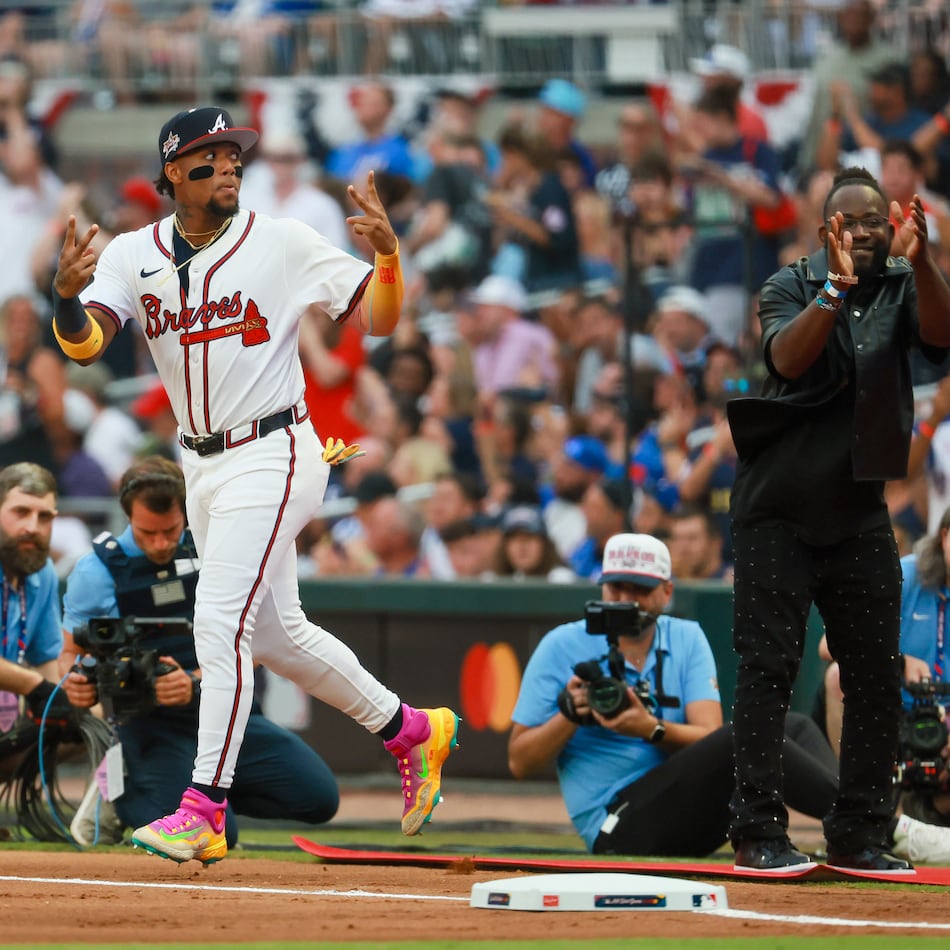At least for the moment, you and I are witnesses to the transformation of the American automobile into something other than a vehicle that carries us from Point A to Point B.
Because under a shelter-in-place policy, Point B isn’t supposed to exist.
Public transportation — whether you define it as buses, trains, airplanes, taxis, Uber and Lyft transport, or even electric scooters — becomes riskier during a pandemic. And so less attractive.
For we suburbanites, the family car has become the sealed spacecraft that allows us to navigate a suddenly hostile void — while properly maintaining social distance. It is a hazmat suit on wheels, stocked with gloves, masks and hand sanitizer, into which we escape after each scary trip to the grocery store.
Schools have emptied for the year. The Braves stadium remains as hollow as a discarded peanut shell. Last week, the Georgia GOP canceled its state convention, which had been scheduled for May 29 and 30 — six weeks distant. It’s going to be a long spring.
But as mass gatherings have gone extinct, the social status of the sequestered car has been elevated. Vehicles have become crucial elements in drive-thru coronavirus testing operations. Churches, too, have quickly recognized that Zoom and other internet apps aren’t a substitute for every group interaction.
A number of congregations in metro Atlanta have moved out of their buildings and gather in their vehicles, with the windows rolled up. Radios are tuned to a low-power FM frequency. Sometimes you have to at least lay eyes on a real human being, even if hugging and shaking hands have become forbidden acts.
Call it the return of drive-in theater, entirely G-rated.
Local governments haven’t always been cooperative, but they have their reasons. Religious gatherings – funerals and celebrations alike – have been the sources of hotspots across the country. Especially in Georgia.
On Wednesday, I tapped into a Facebook interview with Russell Moore, who heads up the Southern Baptist Convention agency that monitors religious liberty issues.
On April 8, Palm Sunday, Greenville, Miss., police officers broke up a parking lot worship service hosted by Temple Baptist Church. Attendees were issued $500 citations for violating the city’s ban on mass gatherings. In a quickly filed lawsuit, the church noted that nearby drive-in restaurants – unmolested — were serving customers who arrived in cars with their windows rolled down.
The U.S. Justice Department has sided with the church. In that Facebook interview, Moore acknowledged that government – state, local and federal – has a legitimate concern when it requires social distancing during a pandemic.
In Georgia, Gov. Brian Kemp hasn’t barred worship services, but has insisted that congregants keep at least six feet apart — the distance that the average sneeze carries.
“There is a government interest in doing that,” Moore said, “but it has to be applied fairly. What that means is, you don’t have a separate set of rules for churches that you wouldn’t have for non-religious sorts of gatherings.
“So when it comes to these drive-in churches, if you have churches doing this and they’re meeting all of the guidelines for social distancing – these are churches with windows rolled up, they’re separated from one another — you can’t penalize people with tickets in that way if you’re not going to do that at the Sonic,” Moore said.
It was a valid point. And I immediately began wondering whether this had implications for the political world. We are in the midst of what could be the most tumultuous electoral season that Georgia has seen in decades, driven by a defining presidential contest and two U.S. Senate races.
Yet the coronavirus pandemic has sidelined virtually all human contact that normally goes with campaigning – from traditional meet-and-greets to town hall gatherings and, most important, door-knocking.
Drive-in political rallies could be one alternative. “I think it could work, particularly if you had a draw,” said Brian Robinson, a GOP political consultant — and the son of a retired preacher. Who just officiated at a drive-in worship in Bogart, Ga.
“People are desperate for a reason to get out of their houses and go somewhere. And even if they’re in their cars, there’s a chance to be a part of something communal,” Robinson said. “It was a sad Easter Sunday for those of us who are Christian – not to be in your home church. I think the urgency of this election, and people’s desire to have something to do, could draw a crowd.”
Car parades are another possibility. We've seen blue-lighted salutes by law enforcement around local hospitals, in support of health care workers. A revival of the flat-bed campaign truck, driving through neighborhoods, is within the realm of reason. Note to the unenlightened: Find yourself a DVD of "O Brother, Where Art Thou?" from 2000.
The four-wheeled messaging in our future may not necessarily be uplifting, or jocular. As my Southern Baptist expert was theorizing on Wednesday afternoon, and my Republican friend was contemplating, an angry parade of thousands of cars and pick-up trucks descended on the state capitol in Lansing, Mich.
“Operation Gridlock,” which featured vehicles decorated with Confederate battle flags and Trump banners, was a demonstration organized by a Michigan conservative group – protesting stay-at-home orders from Gov. Gretchen Whitmer. The coronavirus has killed more than 2,000 in Michigan so far. That’s more than triple the number of fatalities in Georgia.
Vehicles that are helping many of us survive social distancing were a key element in this protest against social distancing. Many left their cars, vans and trucks to gather close together outside Michigan’s capitol – which was noted by Governor Whitmer.
"The sad irony here is that they don't like being in this stay-at-home order, and they may have just created the need to lengthen it," the governor was later quoted as saying. "Which is something we're trying to avoid at all costs."
Credit: Daniel Mears
Credit: Daniel Mears
About the Author
The Latest
Featured





